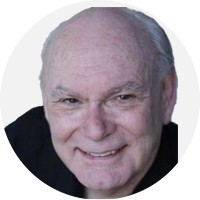The views expressed in our content reflect individual perspectives and do not represent the authoritative views of the Baha'i Faith.
How do we deal with adversity and the thousand other cuts that beset us over our lives? How do we get rid of the self-doubt that can plague us and make us indecisive, unsure, and ineffectual?
Some of us let the inevitable, inescapable vicissitudes of life get under our skin, and become so plagued by self doubt that we find it impossible to make important decisions and affirmatively direct the course of our lives.
Allowing outside forces perpetrated by others to have an effect on our inner life can cause all sorts of disruptions to our well-being, including the danger of being caught up in a downward spiral that undermines our sense of self worth and derails our ultimate purpose.
But if we have a better sense of certainty about ourselves and our decisions, we can endow our lives with faith, and develop a better sense of certitude that can permeate our entire being. In this state outside forces have less effect, our confidence builds, and we become the drivers of our lives rather than passive passengers.
RELATED: Baha’u’llah’s Book of Certitude: Illuminating Spiritual Wisdom
So today I am going to share with you my journey toward certitude – the thoughts, research, and action I’ve taken to acquire an all-encompassing faith and a sense of certainty that has suffused my soul.
Before leaving on my venture I found a profound truth, what the writings of Baha’u’llah refer to as a verity. So important is this verity, Baha’u’llah asserts, that it was revealed in all the heavenly books.
I had to look up the word verity, and according to the dictionary, a verity is a belief of fundamental importance – a universal truth. Might this verity be a pathway, or at least helpful, for creating certainty? Baha’u’llah says the verity is: “The faith of no man can be conditioned by any one except himself.”
I read this profound passage over many times to understand it. Baha’u’llah placed the negative here on the person, not the action. Also, English has few gender-inclusive words, so only convention and context make it clear when “man” means both male and female. Here, by saying “no man” Baha’u’llah makes it abundantly clear that “man” means both genders, as in “mankind.”
However, the real reason, it seems to me, for using the designation “no man” is to show that everyone is capable of achieving unconditioned faith.
This potential is underscored by the phrase “no man can be” which assures us that anyone or anything that seeks to “condition” or effect our faith requires our participation. In other words, the only real obstacle is ourselves. We must first search within ourselves to determine what we truly believe in our hearts and souls, rather than blindly accepting what we’ve been taught or how we’ve been raised.
Perhaps one of the purposes of this verity is to assure us we all have the capacity to not allow outside forces to affect us – in other words, certainty is possible.
I am able to start my journey towards creating certainty knowing it is attainable. In other words, we are responsible adult human beings who have the capacity and the tools to create a sense of certainty that permeates our entire being. Believing certainty is possible is a kind of certainty in and of itself. Our quest has begun, armed with the knowledge it is possible.
Next, what do we do? Baha’u’llah answers:
Attire yourselves, O people, with the raiment of certitude, that it may protect you from the darts of idle fancy and vain imaginings and that ye may be numbered with the faithful.
Raiment is an ancient word for garment or clothing, and attire is simply the act of dressing ourselves. There is no literal garment we can wrap ourselves in to achieve certitude. However, the action Baha’u’llah recommends we take – attiring ourselves with the raiment of certitude – is something we can all do with some search and a determined effort.
Donning a garment prepares a person for a journey. Wearing the right clothes protects us from the darts of idle fancy and vain imaginings during the trip to our destination, the city of certitude. This journey is our responsibility, because it is our own soul we want to endow with certainty. So we have put on our traveling clothes and left the house seeking to be freed from doubt.
Now that we have embarked we need something to keep us heading towards that city of certitude. These admonitions from Abdu’l-Baha, from a speech he gave to the Theosophical Society in 1912, can serve as our signposts to keep us on track:
Strive diligently to acquire virtues befitting your degree and station. Be as lights of the world which cannot be hid and which have no setting in horizons of darkness. Ascend to the zenith of an existence which is never beclouded by the fears and forebodings of nonexistence. … Seek to be attentive, serve the Cause of God and sacrifice one’s own stations for those of God. When attained, the confirmations of the Holy Spirit will surely reach thee, and with this power one can withstand all who inhabit the earth.
Abdu’l-Baha perfectly reflected the teachings of his father, Baha’u’llah – so much so that his certainty could not be disturbed by anyone. He exemplified the truth of his own advice and thus showed us the way to “withstand all who inhabit the earth.” As he told an audience in London after his release from 40 years of imprisonment for his Faith:
When they put my feet in stocks, I said to the guard, you can not imprison me, for here I have light, air, bread and water. To me prison is freedom, troubles rest me, death is life, and to be despised is an honor. Therefore, I was happy all the time in prison.
Our travels have led us to the fact that because of his certitude, Abdu’l-Baha could not be imprisoned. Does that mean you and I cannot be imprisoned either? In London, Abdu’l-Baha answered that question:
When one is released from the prison of self, that is indeed release, for that is the greater prison. When this release takes place, then one cannot be outwardly imprisoned. … The afflictions which come to humanity sometimes tend to centre the consciousness upon the limitations, and this is a veritable prison. Release comes by making of the will a Door through which the confirmations of the Spirit come.
So it’s obvious – if you or I are released from the prison of self, and as self is the greater prison, you or I also cannot be outwardly imprisoned.
Now it seems our expedition for creating certainty is very close to bearing fruit. Let’s review:
- I am sure that my faith is only conditioned by me alone.
- I have been made acutely aware the new force to free my consciousness exists in the writings of Baha’u’llah.
- I am secure in the knowledge it is by grace the confirmations of the Holy Spirit are assured.
RELATED: Who Was Baha’u’llah, and How Can We Evaluate His Claims?
Clearly, certitude is not altogether like something that is created, it is a more like a place to dwell. Maybe that’s why Baha’u’llah metaphorically refers to it as a city – the “City of Certitude.” In his Book of Certitude, he had inspiring things to say about entering that city:
Therein he will discern the wonders of His ancient wisdom, and will perceive all the hidden teachings from the rustling leaves of the Tree which flourisheth in that City. With both his inner and his outer ear he will hear from its dust the hymns of glory and praise. The attainment of this City quencheth thirst without water, and kindleth the love of God without fire.
Anyone can find their own path to the city of certitude within the Baha’i writings and teachings. Baha’u’llah has made it possible, no matter who you are, or what spiritual capacity you may have. He assured us that: “We have variously set forth the meaning of every theme that every soul, according to capacity, may know where to quench their thirst.”
















Comments
Sign in or create an account
Continue with Googleor